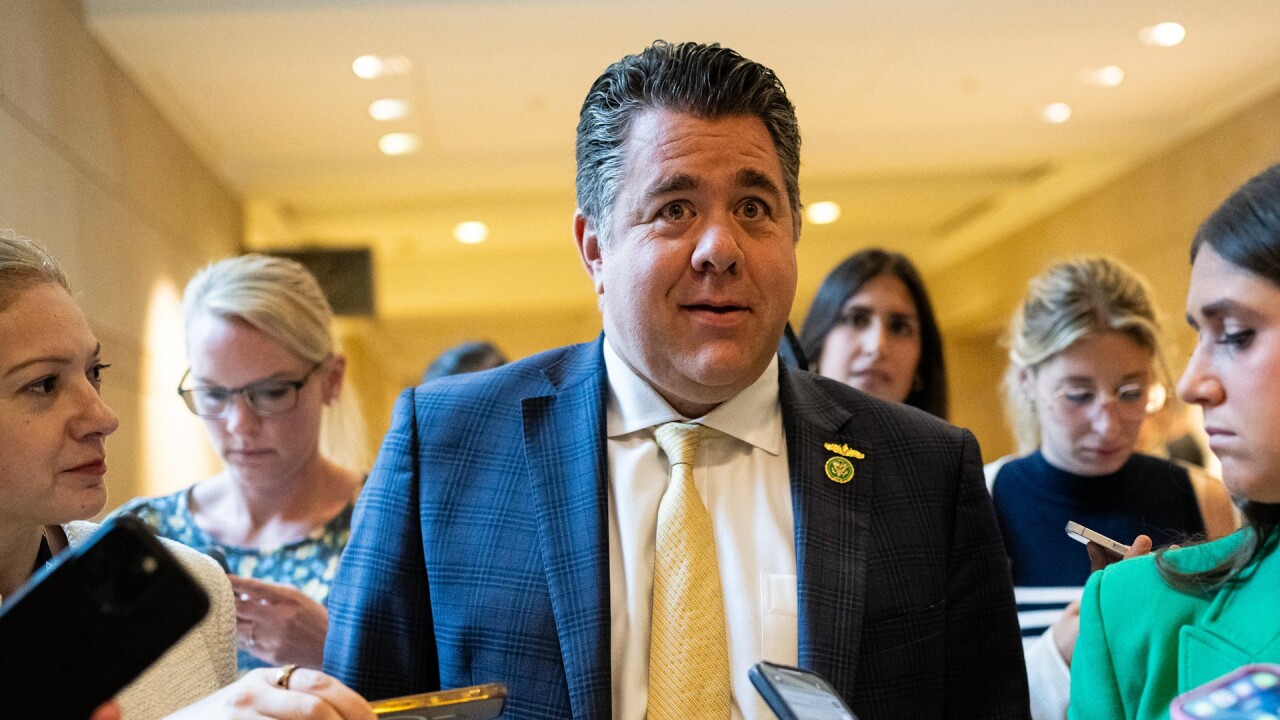CHICAGO — As part of its twice-annual program to ease cash-flow deficits across the state, the Indiana Bond Bank plans to enter the market tomorrow with $436 million of short-term notes that will mark one of the bank's largest mid-year offerings in 20 years.
JPMorgan is senior underwriter on the deal, leading a team of four firms. Barnes & Thornburg LLP is bond counsel, and Crowe, Chizek and Co. is acting as financial adviser. The Bank of New York Mellon will provide a standby credit facility for the notes.
Proceeds will be used to purchase tax anticipation warrants for 111 entities, including school, library, fire, and township districts, which are participating in the mid-year program. The districts are expected to pay back the warrants by Dec. 31 and the notes mature on May 28, 2009.
In January the bank issues advance funding notes to cover cash-flow deficits through the first 180 days of the year. The mid-year issue covers deficits from July 1 through the end of the year.
The upcoming note issue is roughly $100 million larger than most mid-year issues chiefly because many taxing districts this year have been late in sending out their property tax bills as they adjust to a new property assessment method, said Dan Huge, executive director of the Indiana Bond Bank. Under the new method called trending the state is required to annually assess property based on market value rather than every 10 years as before.
The 2007 tax year was the first year that trending has been in effect across the state, Huge said. "A number of the bills have been delayed," he said. "However, we anticipate that the majority of the communities will receive all of their tax dollars in 2008, and they should be caught up by the end of the year."
Despite the delays, Huge said he expects all entities to collect the taxes by the end of 2008 and repay the bond bank on schedule. He added that the program has never experienced a default or delay.
While noting the property tax bill delay as a potential problem in the 2008 program, Standard & Poor's said the risk is offset by effective set-asides for many of the entities as well as strong Bond Bank management and experience with property tax delays.
The rating agency assigned its top SP-1-plus rating to the notes. The rating reflects "overcollateralization" of the notes by the Bank of New York Mellon credit facility, said Eden Perry in a report on the issue. The credit facility covers potential debt service deficiencies of up to 9%, or $40 million, of the total note amount, Perry said.
The Bond Bank has used Bank of New York for years to provide a credit facility, Huge said, and though fees went up this year amid a liquidity crunch across the municipal bond market, bond bank officials determined the fee hike was not "extraordinary" given the market, Huge said.
Meanwhile, the program could see demand for short-term borrowing decline next year as another set of changes to the state's property tax reform take effect.
As part of the massive property tax changes enacted by Gov. Mitch Daniels and the General Assembly this year, the state is taking over responsibility for funding schools' general funds. That means that schools, typically a major participant in the note program, will not need to borrow for those funds, Huge said.
Other changes to the property tax code including property tax caps scheduled to take effect over the next few years are not expected to have a big impact on the program, he said.
The largest borrower in the mid-year program is Indianapolis Public Schools, which accounts for just fewer than 9% of the $436 million issue, followed by Gary Community School Corp., which accounts for about 6% of the program this year.





